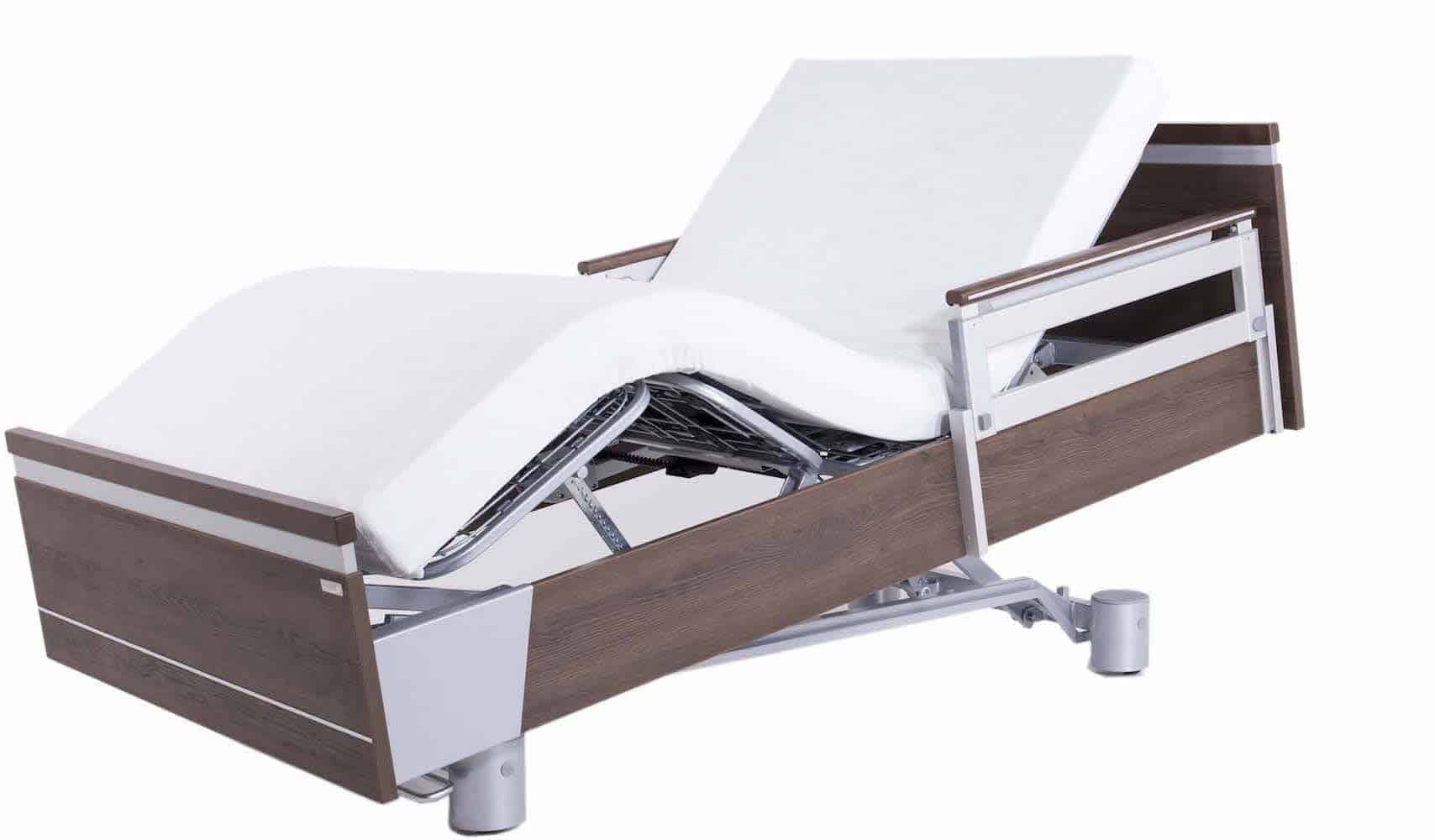Learn About How A Hospital Bed Improves Sleep Conditions For Dementia Patients
Dementia: A Quick Introduction
Dementia is a general term that describes various conditions related to a decline in mental ability and memory loss. It’s not a disease in and of itself, but rather the symptom related to over 500 diseases and conditions, including traumatic brain injury. While the most well-known form is Alzheimer’s disease, there are others; for example, vascular dementia, a condition that affects the blood vessels in the brain, often occurs in those who suffer a stroke.
The damage makes it difficult for the brain cells to communicate, and they can no longer carry out their normal functions. Many of the common symptoms include:
- Apathy
- Memory loss
- Confusion
- Frequent emotional changes
- Loss of interest in socializing
- Difficulty performing routine tasks and speaking clearly
- Visual impairment
- Inability to recognize familiar faces
- Weakness and loss of mobility
When the decline begins interfering with one’s quality of life, the person’s family and loved ones should start making changes to help the dementia patient. It’s especially true for nighttime, as sleeping becomes a problem in almost all cases. A hospital bed can help a dementia patient who is handling sleep difficulties – as well as the caregivers.
- Dementia is a term used to describe various conditions related to a decline in mental ability and memory loss.
- It is a symptom related to over 500 diseases and conditions, including traumatic brain injury.
- Alzheimer's disease is the most well-known form, but there are others such as vascular dementia.
- Common symptoms include memory loss, confusion, emotional changes, loss of interest in socializing, and difficulty performing routine tasks.
- Hospital beds can help dementia patients who are handling sleep difficulties, as well as their caregivers.
Hospital Beds Can Help Prevent Falls & Nighttime Injuries for Dementia Patients
As dementia progresses, the damage to brain cells will lead to coordination difficulty, physical decline and possible visual impairment. Patients with dementia fall more often than cognitively healthy older adults. For this reason, a lowering feature on your bed is essential to prevent injuries during the night. The closer they can sleep to the floor, the better to minimize any injuries from falls.
Purchasing a fully-electric hospital bed with high-low elevation is the best choice for the patient’s safety. The bed can be raised into a high position for caregiving and lowered to a safe height off the floor when the patient sleeps. If they try to get out of bed, they will not be able to get up to stand and walk.
A hospital bed will help those charged with managing these symptoms, possibly letting a person with dementia stay in their home longer. When reliance on others becomes advanced as dementia progresses, the height-adjustable features can also facilitate improved healthcare. The caregiver can raise the mattress to waist level for feeding, in-bed bathing, and nursing care without putting a strain on their bodies.
Environmental changes can be made in the hospital setting to decrease such behavior. Goodall, D. (2006). Environmental Changes Increase Hospital Safety for Dementia Patients. Journal of Healthcare Protection Management, 22(1), 57-60.
https://doi.org/10.1097/00004650-200603000-00008
Nurses’ perspectives regarding fall prevention for patients with dementia in an acute care setting are perceived as challenging. Ayton, D., O’Brien, P., Treml, J., Soh, S.-E., Morello, R., & Barker, A. (2017). Nurses’ perceptions of preventing falls for patients with dementia in the acute hospital setting. Australasian Journal on Ageing, 36(3), E32-E35. https://doi.org/10.1111/ajag.12474
- As dementia progresses, patients may experience coordination difficulty, physical decline, and visual impairment, which can increase their risk of falling.
- To prevent injuries from falls, a lowering feature on the bed is essential, and the closer the patient can sleep to the floor, the better.
- A fully-electric hospital bed with high-low elevation is the best choice for the patient's safety, as it can be raised for caregiving and lowered to a safe height for sleeping, making it difficult for patients to stand and walk if they try to get out of bed.
- Using a hospital bed can help caregivers manage dementia symptoms, allowing patients to stay in their homes longer, and facilitate improved healthcare when reliance on others becomes advanced as dementia progresses.
- The height-adjustable features of a hospital bed can also make feeding, in-bed bathing, and nursing care easier for caregivers without putting a strain on their bodies.
Hospital Beds Adjustments For Dementia Support And Comfort
Feelings of restlessness and agitation are common for those with dementia, making it necessary for loved ones to ensure feelings of relaxation and comfort. Being able to adjust the position of the bed can provide this type of support, as well as make it easier to accept personal care.
SonderCare luxury care beds can achieve almost limitless positioning, with individual Backrest, Knee, Height Range, Chair, and Tilt operations. The Auto-Contour function operates the Backrest and Knee simultaneously, making for a comfortable position to read, watch TV, or relax.
These hospital beds can also support the care of respiration and circulation issues that often attenuate dementia. Healthcare professionals can often prescribe upright and prone positioning as a medical necessity for distributing oxygen. The head and tilt adjustment on an adjustable bed raise patients upright without exertion.
Hospital Bed Aid and Assist Dementia Patient Caregivers
Hospital beds are of crucial significance when it comes to caregiving in a medical setting. These specialized beds offer a multitude of benefits to caregivers that can make their work both smoother and more secure. Let us delve into the ways that hospital beds can benefit dementia caregivers, and in turn, how it can lead to better health outcomes for patients.
The Comfort Factor: The beds that are used in hospitals are designed to provide the maximum comfort possible to the patients. They are highly adjustable and can be easily modified to meet the unique needs of each patient. By keeping the patient comfortable, hospital beds can significantly reduce agitation and discomfort, making the work of dementia caregivers less arduous.
Pressure Sores and Prevention: Patients who are bedridden or have limited mobility are at an increased risk of developing pressure sores. Hospital beds are designed to reduce this risk by distributing pressure evenly across the patient’s body, leading to a reduced chance of developing these sores. By preventing pressure sores, hospital beds can alleviate pain and save dementia caregivers the trouble of treating them.
Safety First: Hospital beds are designed with safety in mind. Side rails can be raised or lowered as needed to prevent patients from falling out of bed. In addition, the bed brakes can be locked to keep it stationary, making it easier for caregivers to perform tasks such as changing bedding or administering medication without any risks of accidents.
Ease of Movement: Hospital beds are often equipped with wheels that make it easy to transport the patient from one place to another. This feature can be especially useful in emergencies when time is of the essence.
Posture Perfection: Hospital beds can aid in improving a patient’s posture, which can be beneficial for those with mobility issues. By adjusting the height of the bed or the angle of the headrest, caregivers can assist the dementia patient in sitting up straighter, improving breathing and overall comfort levels.
Ultimately, it has been shown in many scenarios that hospital beds are an indispensable tool for caregivers in medical settings. They provide a safe and comfortable environment for patients, which in turn makes the caregiver’s job more manageable and efficient. With the help of hospital beds, caregivers can provide better care to their patients, leading to better health outcomes and overall well-being.
Physical, cognitive, and psychosocial interventions in the treatment of dementia patients are evaluated. Nehen, H.-G., & Hermann, D. M. (2016). Supporting dementia patients and their caregivers in daily life challenges: Review of physical, cognitive and psychosocial intervention studies. European Journal of Neurology, 23(11), 1504-1514. https://doi.org/10.1111/ene.12535
A lack of consistency of training and specialist dementia roles restricts recommendations from a robust evidence base. Brooke, J., & Ojo, O. (2015). Elements of a sustainable, competent, and empathetic workforce to support patients with dementia during an acute hospital stay: A comprehensive literature review. Journal of Evaluation in Clinical Practice, 21(6), 1116-112. https://doi.org/10.1002/hpm.2448
- Hospital beds offer many benefits to dementia caregivers in medical settings.
- They provide comfort to patients, which can reduce agitation and discomfort, making the caregiver's work easier.
- They can help prevent pressure sores by distributing pressure evenly across the patient's body.
- Hospital beds are designed with safety in mind and come with side rails that can be raised or lowered to prevent patients from falling out of bed.
- Hospital beds are equipped with wheels that make it easy to transport the patient from one place to another, especially in emergencies.
- Medical beds can aid in improving a patient's posture, which can be beneficial for those with mobility issues.
- Hospital beds help caregivers provide better care to their patients, leading to better health outcomes and overall well-being.
SonderCare Beds Come In Familiar, Home-Like Designs
When a person with dementia starts coming down with symptoms, their surrounding environment should be as familiar as possible. It can have a calming effect on the person who needs care, positively impacting how they handle confusion and anxiety. If you’re selecting a care bed for a loved one with dementia, choose a model that looks and feels like it belongs in the home rather than one that reflects an unfamiliar environment.
SonderCare offers beds suited for people who have a cognitive impairment like dementia. Our line of hospital beds’ premium style and design use materials you would find in ordinary beds. They don’t look like the beds you’d find in a healthcare facility, even as they carry all the features that make hospital beds vital. These features can also help family members care for them in the home.
From Our Experience... "My business, life and industry experience has taken me to many memory care facilities across the US and Canada and it never gets easier to see the effects of Dementia. Helping caregivers, staff and family members provide the best care and safety standards is crucial and it starts with a certified hospital bed."
Kyle Sobko Hospital Bed Expert
- Hospital beds can provide many benefits for individuals with dementia, including increased safety, comfort, and mobility.
- Hospital beds can help reduce the risk of falls and injuries by providing raised bed rails and adjustable heights that make it easier for caregivers to assist with transfers and movements.
- Hospital beds can also offer therapeutic benefits, such as adjustable positioning for better breathing, circulation, and digestion.
- Hospital beds can provide a sense of security and familiarity for individuals with dementia, as they may be used to similar bed setups in hospitals or care facilities.
- Hospital beds can also help reduce caregiver strain and fatigue by providing easier access for caregiving tasks and reducing the need for manual lifting and transfers.
- It is important to choose a hospital bed that is appropriate for the individual’s needs and preferences, and to ensure proper training and education for caregivers on how to use the bed safely and effectively.
- Hospital beds should be used as part of a comprehensive care plan for individuals with dementia, including medication management, nutrition, exercise, and social engagement.
Frequently Asked Questions About Beds Helping Sleep Quality for Dementia Patients
Hospital beds for dementia patients may have features such as raised bed rails to prevent falls, adjustable height for easier transfers, and adjustable positioning for improved breathing and digestion. Some hospital beds may also have built-in alarms or sensors to alert caregivers if the patient gets out of bed.
Hospital beds can improve safety for individuals with dementia by providing raised bed rails to prevent falls, as well as adjustable height and positioning to make it easier for caregivers to assist with movements and transfers. Hospital beds can also reduce the risk of injury from accidental falls or other hazards in the bedroom.
Hospital beds can reduce caregiver strain by providing easier access for caregiving tasks, such as changing linens, bathing, or assisting with transfers. Hospital beds can also reduce the need for manual lifting and transfers, which can be physically demanding and increase the risk of injury for caregivers. Additionally, hospital beds with built-in features such as alarms or sensors can provide added peace of mind for caregivers, allowing them to rest more easily knowing that the patient is safe and secure.














